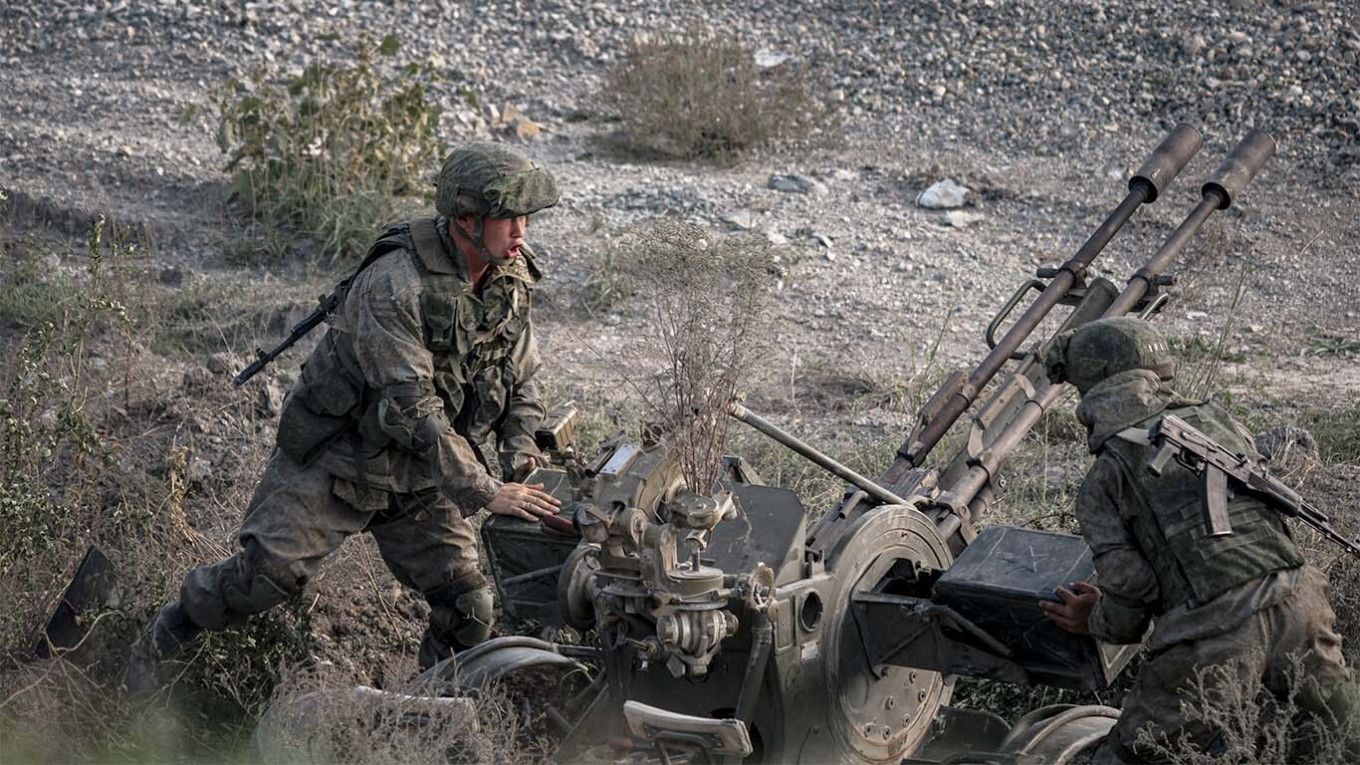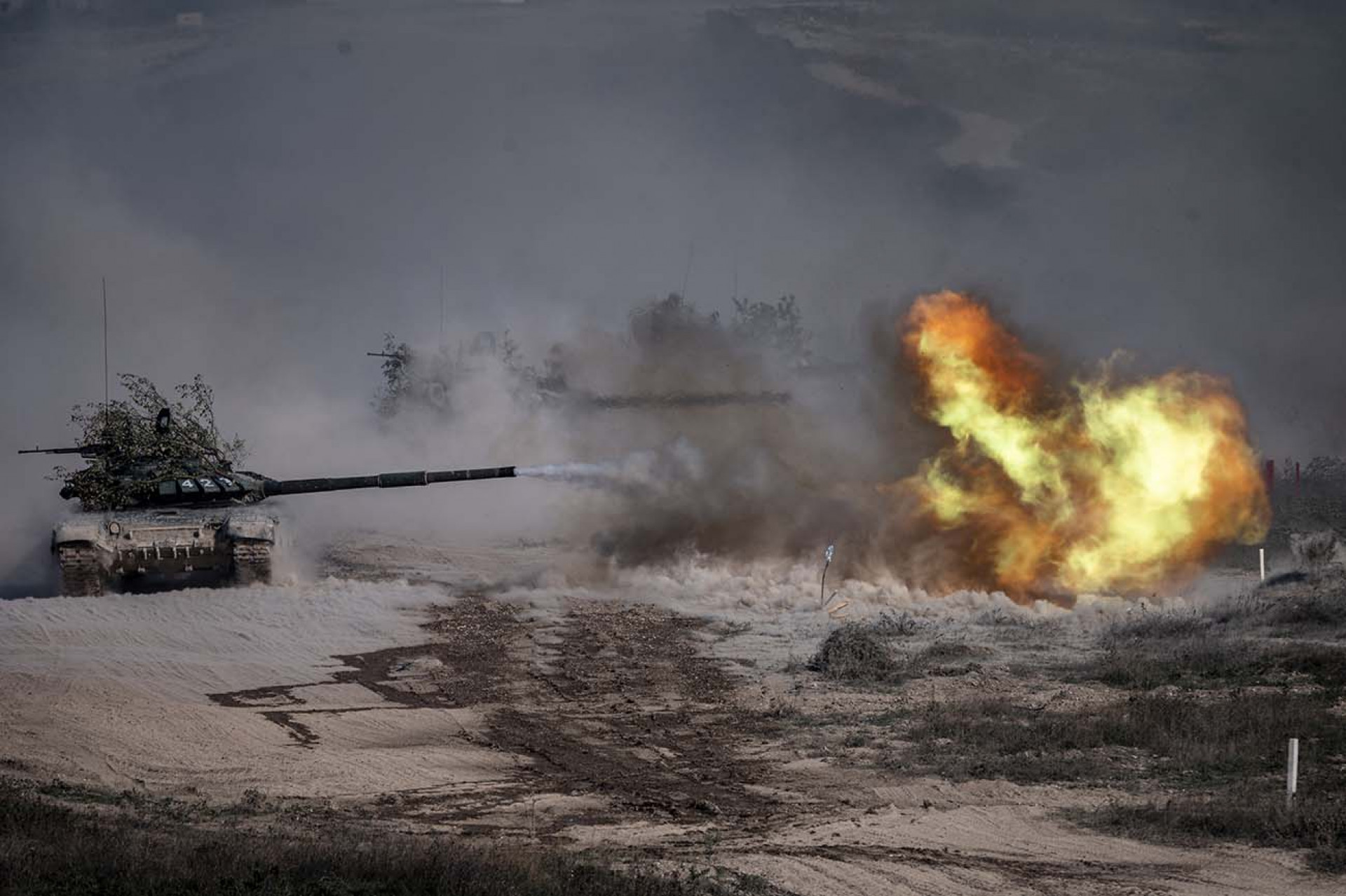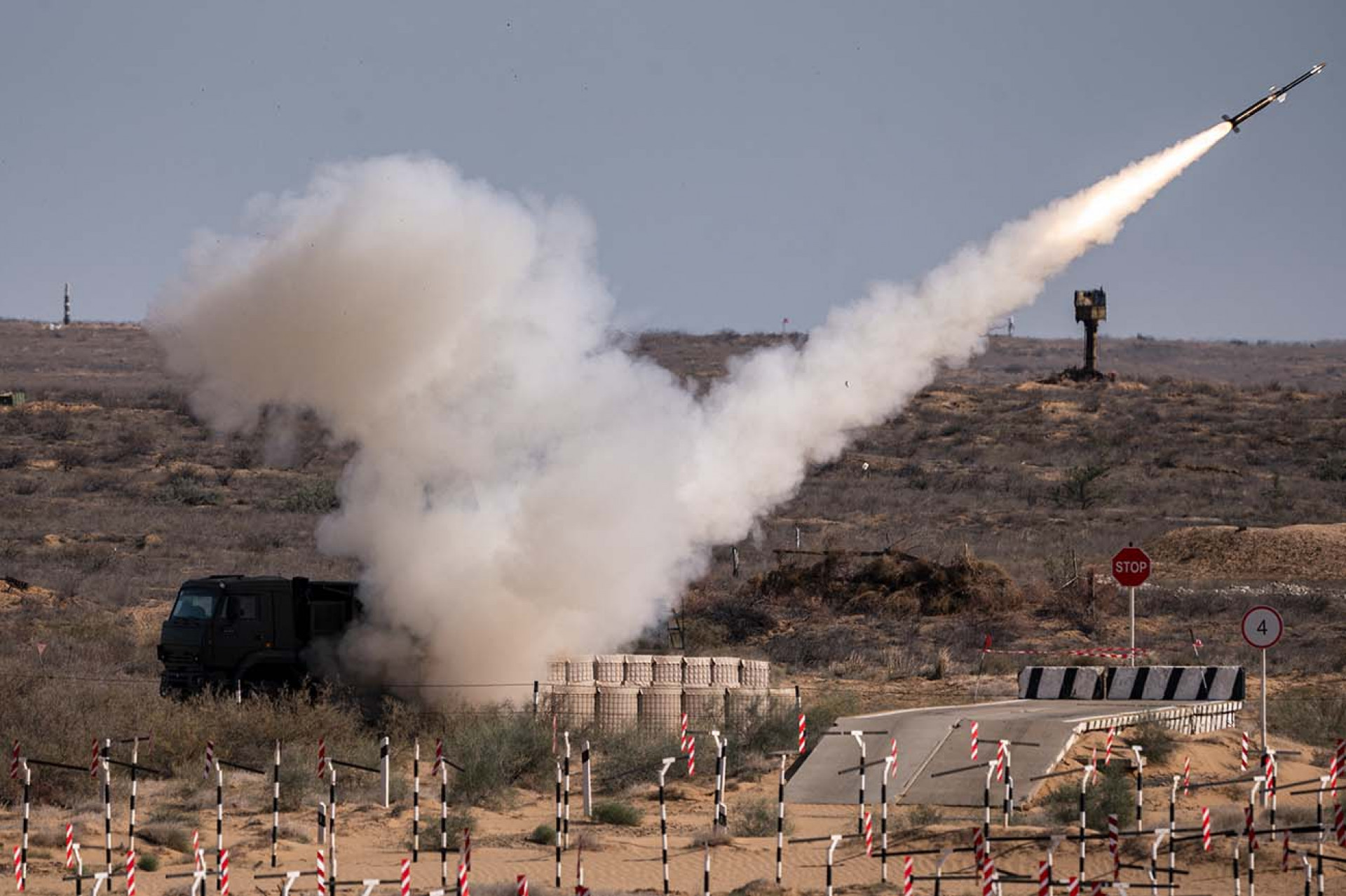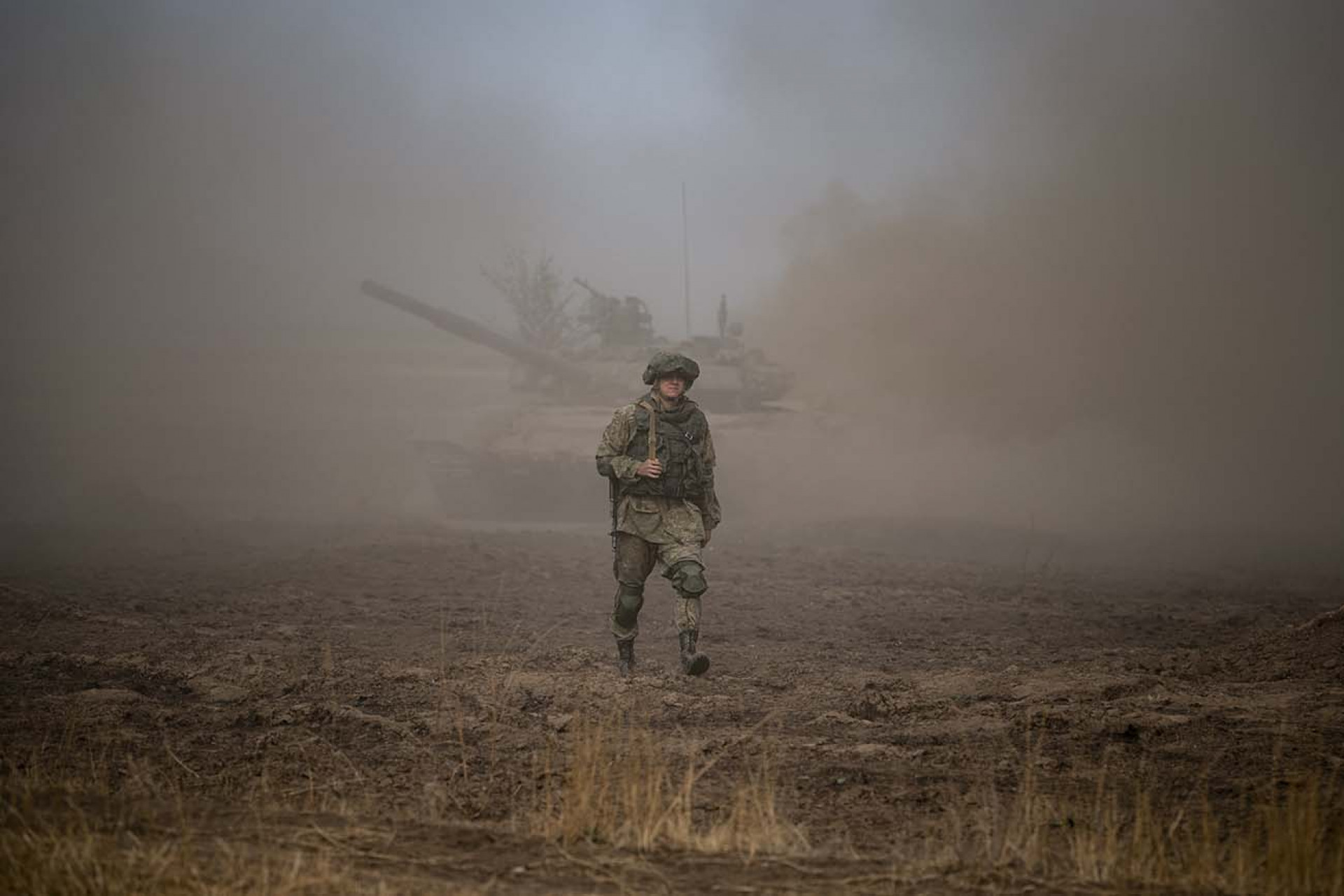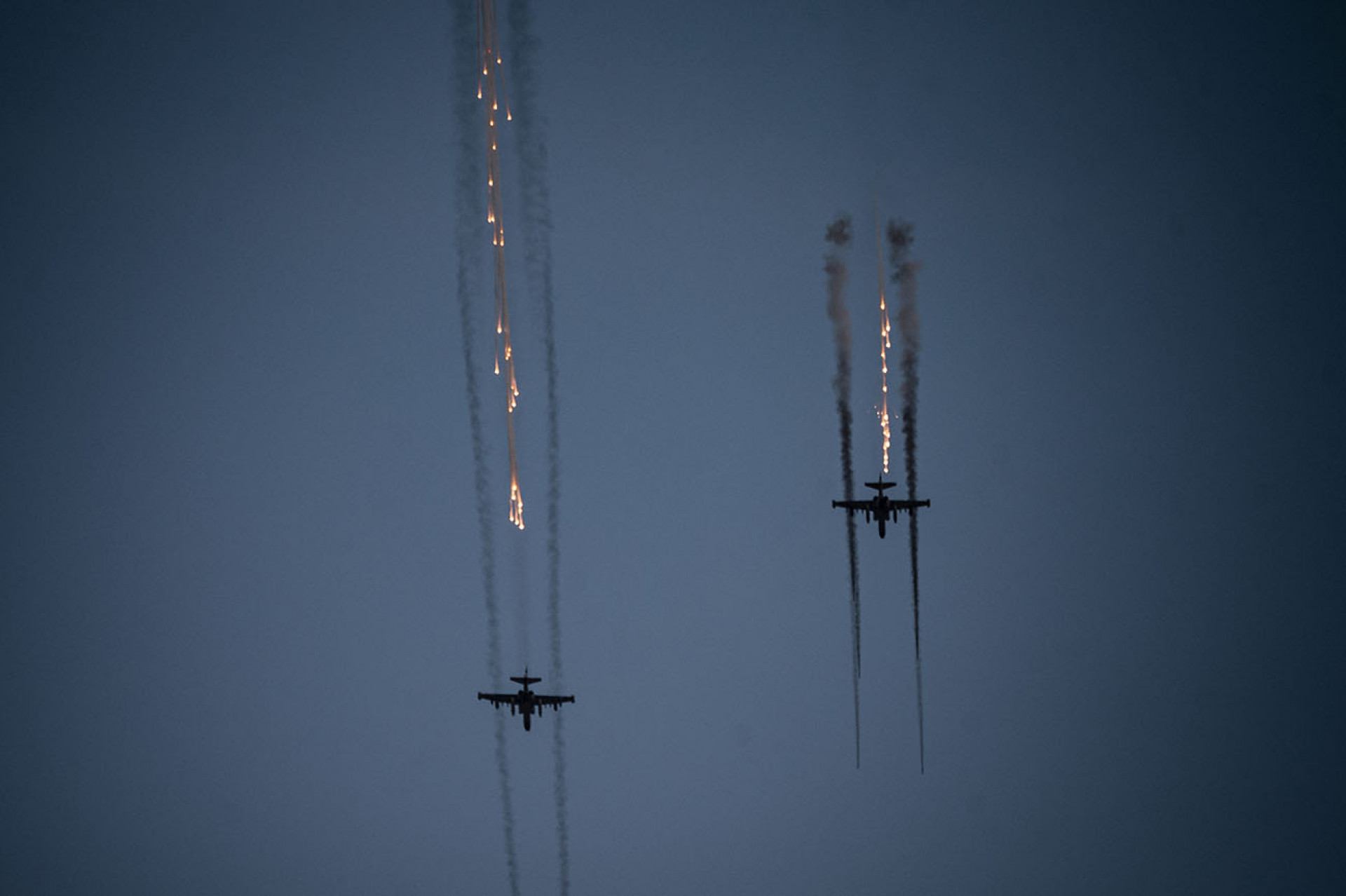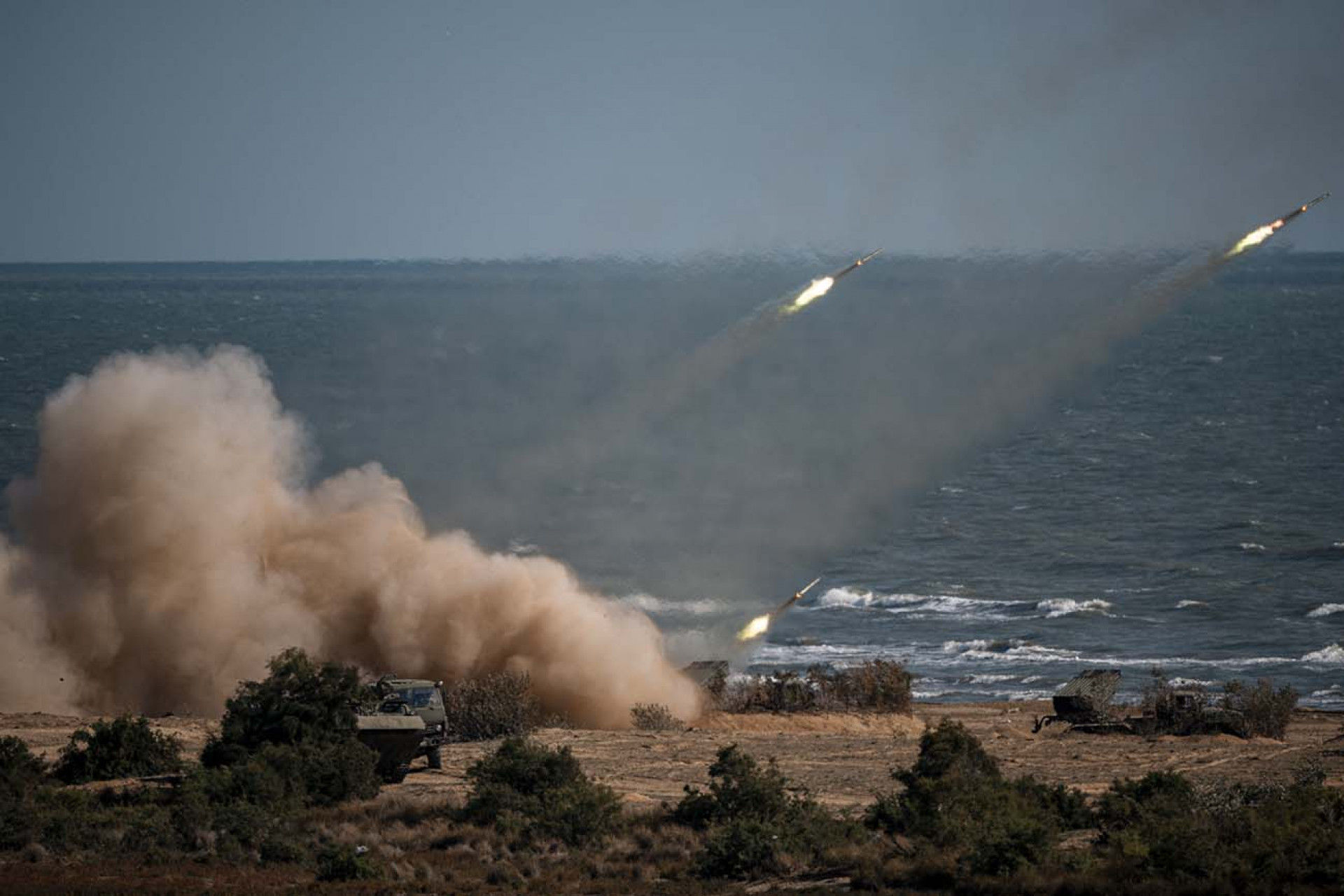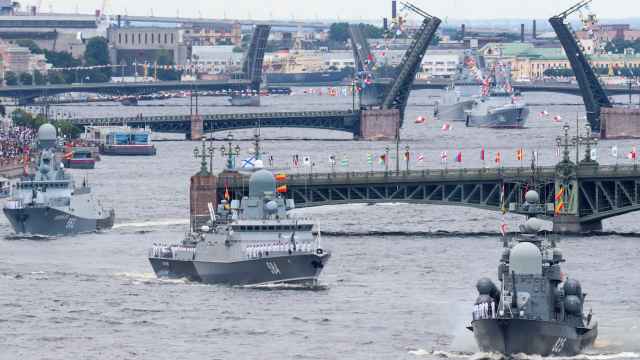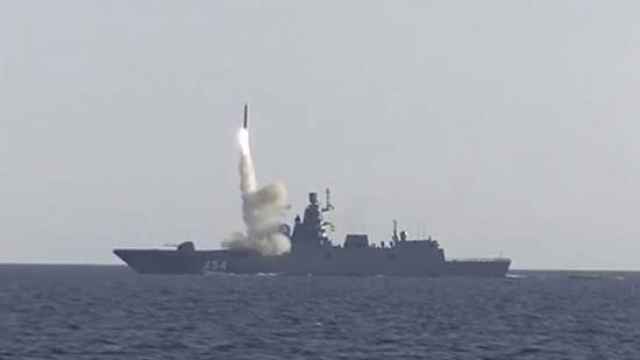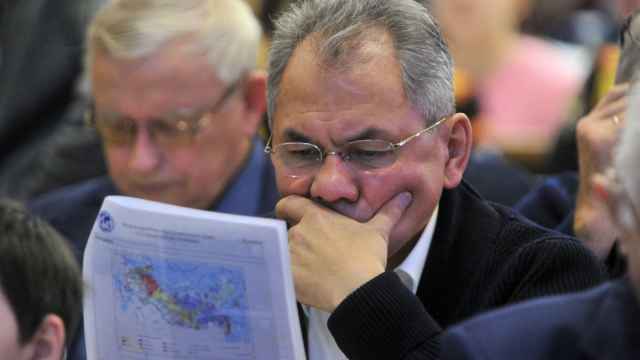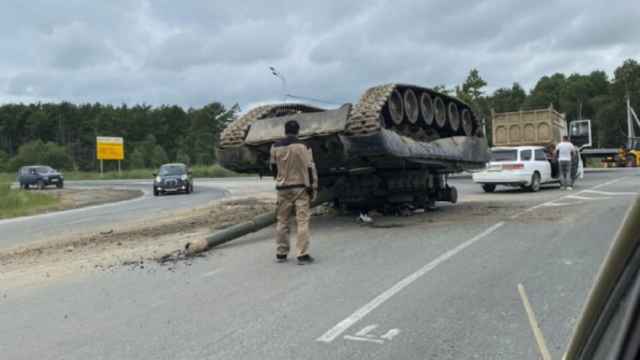Russia is staging a series of military exercises with China and other allies amid growing alarm over fresh tensions with the West.
The largest of these games, Caucasus-2020, kicked off in southern Russia this week and include land and naval exercises involving a total of 80,000 people including more than 12,000 troops.
China, Iran and Myanmar are taking part along with several ex-Soviet countries including Belarus.
"These exercises are the main annual test of the Russian Armed Forces' readiness to engage in a large-scale conflict," Vasily Kashin, a Moscow-based military analyst, told AFP.
The drills that last until Saturday and feature naval deployments on the Black Sea and the Caspian have been organized "for the top echelons of the military leadership," he said.
According to the Defense Ministry, up to 250 tanks and around 450 infantry combat vehicles and armored personnel carriers are taking part in the drills along with artillery systems and rocket launchers.
The Russian forces will test the TOS-2 heavy flamethrower systems first paraded through Moscow's Red Square during Victory Day celebrations in June.
President Vladimir Putin has made reviving the army one of the top priorities of his 20-year rule.
After years of post-Soviet neglect, the armed forces received new aircraft, tanks and missiles, opened new bases in the Arctic and resumed Cold War-style strategic bomber patrols.
A 'springboard' for attack
Moscow has staged more frequent large-scale military exercises in the Caucasus, the Baltic and the Arctic in recent years.
In 2018, Russia held what it has called its largest-ever military drills, with 300,000 Russian troops joining Chinese soldiers in a show of force condemned by NATO.
Russia's drills this fall are also viewed as a show of support for Belarusian strongman Alexander Lukashenko who has faced unprecedented protests against his disputed re-election last month and was sworn in during a secret ceremony Wednesday.
Running parallel to the Caucasus-2020 games, the joint Russian-Belarusian drills dubbed Slavic Brotherhood began in mid-September and involve more than 900 troops.
The drills were launched near Belarus's southwestern city of Brest on the Polish border, and as part of the games, two Russian supersonic heavy strategic Tu-160 bombers flew over Belarus's border with the EU on Tuesday.
Lukashenko has accused Poland and the Baltic states of coordinating with the opposition and has claimed Western countries see Belarus as a "springboard" to attack Russia.
"Putin and me are of the same opinion: we are being hunted here so that they can go for Russia afterwards," Lukashenko said in August.
Next month Belarus will also host drills by the six-member states of a Russia-led security bloc, the Collective Security Treaty Organization.
Ukraine, whose army is fighting Moscow-backed separatists in the east of the country, has said Russia's upcoming war games constitute a serious threat.
'Invincible' weapons
"Military units present participating in the maneuvers could be used to provoke escalations and threaten the stability of the Black Sea," the Defense Ministry said.
NATO patrols the Black Sea where Ukrainian and Russian gunboats have clashed in waters near Crimea after the territory was annexed in 2014.
Several countries have pulled out of military exercises with Russia this year, with New Delhi citing the coronavirus pandemic but observers pointing to its frayed ties with China.
Moscow's ally Serbia dropped out of drills in Belarus after what Belgrade called "great and undeserved pressure" from the EU.
The Kremlin's relationship with Europe has worsened since Russia annexed Crimea and tensions are exacerbated by allegations of election meddling and spying.
The poisoning of leading Kremlin critic Alexei Navalny recently spurred sharp condemnations from European leaders who have said they could respond with further sanctions on Moscow.
Russia insists the purpose of its "purely defensive" exercises are to ward off a theoretical enemy, but sees the games as an opportunity to show off its military prowess.
Moscow is carrying out a costly overhaul of the country's military and has tested dozens of new additions to its arsenal in Syria since entering the conflict in 2015.
Compared with the last Caucasus-2020 games in 2016, Russia has added more drones and artillery to its military as well as fighter jets and air defense systems like the renowned S-400 systems, Kashin says.
Putin has also lauded new "invincible" nuclear-capable weapons, which have yet to be shown off in drills.
Kashin raised the possibility that one of the new weapons -- the Kinjal hypersonic missile -- could be unveiled during Caucasus-2020 as well as the fifth-generation Su-57 fighter jet, which has been anticipated for several years.
A Message from The Moscow Times:
Dear readers,
We are facing unprecedented challenges. Russia's Prosecutor General's Office has designated The Moscow Times as an "undesirable" organization, criminalizing our work and putting our staff at risk of prosecution. This follows our earlier unjust labeling as a "foreign agent."
These actions are direct attempts to silence independent journalism in Russia. The authorities claim our work "discredits the decisions of the Russian leadership." We see things differently: we strive to provide accurate, unbiased reporting on Russia.
We, the journalists of The Moscow Times, refuse to be silenced. But to continue our work, we need your help.
Your support, no matter how small, makes a world of difference. If you can, please support us monthly starting from just $2. It's quick to set up, and every contribution makes a significant impact.
By supporting The Moscow Times, you're defending open, independent journalism in the face of repression. Thank you for standing with us.
Remind me later.


